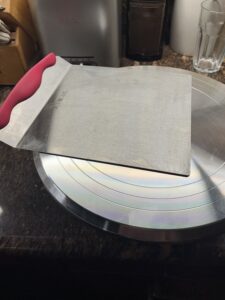Yesterday was Tu B’Shvat, which I have a very bad tendency to call the birthday of trees. I’ve been talking about its history all over the place because, right now, I really want bigots to know that they don’t actually understand Judaism or most Jews. How I’m doing this is by being a bit more publicly myself. I was brought up traditionally for Australian Modern Orthodox, which is nothing at all like traditionally for many other branches of Judaism. My Australian accent is completely and utterly Jewish… because we don’t have our own dialect in Australia.
This is not the first time I’ve confused people by existing and, in the process, let them discover Judaism and Jews. I still get conversations from last time. Last time I had to deal with Molotov cocktails and the like and, because it was a less-harsh moment, I wrote gentle articles and shared recipes and began writing Jewish fantasy novels. The novels are still in print. The ones that directly emerged from that flurry of hate were The Wizardry of Jewish Women and The Time of the Ghosts.
I’m attaching one of the articles here. It was first published in Fables and Reflections in 2005. I didn’t feel like 20+ years ago was an easier time, but it was. I’ve learned a lot more about dealing with hate, but also a lot more about fairy tales and Jewishness since I wrote this piece.
I’ve included it to show you how I translated my life into something others could understand, to help them diminish hate. This kind of writing worked back then because there wasn’t such a fury of hate. I wish life were that simple now. Back then there wasn’t nearly as much work by haters to create a whole new language of hate, using old language and old hate.
I like this essay. It’s my mind in a time capsule from 20 years ago. I want to thank Lily for publishing it, but we’ve lost track of each other.
Jewish Fairy Tales
Part One
There are as many interpretations of Jewish fairy tales and folk stories as there are Jews. There are as many interpretations of fairy stories and folk stories as there are people in the world. This is mine.
Ask an Australian Jewish child about their favourite fairy tale. You might be told the story of Yankel and his donkey from a popular children’s book or an anecdote from Fiddler on the Roof. If you’re very lucky, you might get a Yiddish story. Yiddish is the language of the Jews of Eastern Europe, so the Yiddish story might have had its roots anywhere from a village in the middle of nowhere, to a large centre such as Bialystock or Warsaw. Asking that child for a tale may not produce evidence of Bialystocker roots, because you’re just as likely to be informed about Snow White or Puss in Boots or the Little Mermaid: Australian Jews are a tiny minority group, and Australian Jewish children live as part of a wider society and share their tales with that wider society.
I was brought up on all the usual fare – Mother Goose and Aladdin, Little Red Riding Hood, Little Bo Beep, the Three Billy Goats Gruff. Some of these were tales of wonder written by adults for children, like those told by Hans Christian Andersen; some of them were spun for an elegant court like the traceries of Madame d’Aulnoy; and some of them were collected as part of an enthusiasm to preserve oral tradition, like the stories penned by the Brothers Grimm. Some were bowdlerized and some were brutal. Some rang clear as a bell and some were tangled and confused. I heard them through TV and books, through recitations by friends, through bad playground jokes.
Sometimes the stories gained a Jewish twist. Cinderella became Cinder-Esther one Purim* when the story of the ill-done-by girl and her Prince Charming was fretworked into the tale of Esther and transformed into a satirical musical. Mostly, however, we heard the same tales as others – we shared our fairy stories the way we shared most other things in our culture. “Cindereller dressed in yeller” is far more realistically part of my tradition than Cinder-Esther.
When I was a pre-teen I discovered Ginzburg’s magisterial The Legends of the Jews. This book is a compilation of many of the older stories that have become part of the tapestry of our religion.
Reading Ginzburg led me to the astonishing discovery that the most boring murmurs in synagogue during services actually hid fun stuff: the Torah** became a source of tales. It turned out I actually knew the tales, too: Moses and the Exodus, Adam and Eve. And then I found a wealth of tales spun around these core stories. Like fanfiction, the core became a stable centre for a kaleidoscope of stories.
Micha Joseph Bin Gorion collected and translated a volume of these in Mimekor Yisrael, which mocks me from my bookshelf whenever I want to write a short story. It has tales ranging from Genesis to eighteenth century Poland, from human dramas to beast fables. “Everything has already been written,” these tales announce to me, very firmly. “All good tales were told a thousand, two thousand years before you were born.”
Sometimes the tales in Mimekor Yisrael are good stories well told and leave me exhausted with envy: sometimes they’re so moral and drenched in mind patterns that are long gone that I look at them and wonder if I should be writing fairy stories, as Jane Yolen does, and preserve the way we think now as these tales preserve past thoughts. These tales are the old Jewish teaching. They are the fairy tales that make the Law achievable and understandable.
Discovering all this was a miracle for me, but not of great import to anyone else.
Ginzburg alerted me to a mystery. My almost-teen self was a bit puzzled. How were so many key Jewish tales rolled into mainstream culture with no-one remarking? I was faced with Jacob and His Amazing Technicolour Dreamcoat and “Joshua fit the Battle of Jericho”. Our tales had the same status as Gilbert and Sullivan in my life and about as much Jewish content.
As a child, I wanted a little sticker that said, “This story started off Jewish.” It would have given me a positive Jewish identity outside the home, rather than an identity which grew in the schoolyard from responding to comments that I was a “dirty Jew”, or the unfunniness of Jewish jokes, or to accusations of having personally killed Jesus. I had to keep my awareness of the Jewish origins of popular culture quiet. I had to minimise damage.
As an adult I found out I had been missing the wood for the trees. Stories from the Five Books of Moses led the way to many more tales in the overwhelmingly huge written version of our oral law, the Talmud. It appeared that Jewish law was a fabric woven from lore – tales told us how to be and led us into deep thought about life and about religion.
This illumination leached some of the happiness from stories I had thought of as charming folk tales. As they gained more Jewishness in my mind, they lost their folk status. It was like the first time I went to a class taught by an Ultra-Orthodox rabbi. This rabbi encouraged us through using stories to join the far right of Jewish belief. I found my mind losing the joy in those tales through trying to understand the law.
Bin Gorion wrote down those teaching stories as “Classic Jewish Folktales”. I thought back to the Brothers Grimm and Madame d’Aulnoy and rebelled against the traditional rabbinical teaching method.
It’s only recently that I have realised that the tales in Torah and Talmud and the teaching tales from Torah and Talmud can be both folk and fable. These stories have survived partly because they encourage learning.
Fairy stories are key to Jewish survival. This disturbed me as a teenager, but really appeals to me as an adult.
I have to admit, having learned that lesson I gave up on the legal side of Judaism: my interests are less elevated.
Jewish history is fraught with forgetfulness. We remember the murders and the pogroms and the persecutions and the expulsions with the greatest sorrow and regret. Each time we suffer, our folk culture bends and twists to help us survive. We lose some folk culture, we gain some – we get through.
We lost most of the folk stories of the Medieval English and French Jews when they were expelled from their homelands. The people mostly survived. They went on to create new lives. Their culture changed so much, however, that it’s hard to recognise today.
I started to ponder: what tales of wonder did my family lose when some of my ancestors fled to Australia? I belong to mainstream Australia; the family arrived between the 1850s and 1918. The folkstuff my Bialystocker grandfather taught me were the first words of the Volga Boat Song and a few steps of Cossack dancing. That song and those dance steps were as close to Judaism as “Cindereller dressed in yeller”.
The Moldavian, Bielarus and other Polish branches of the family taught me even less. The only parts of me that have fairy tales to match my origins are the English and the German. My folk patchwork is patchy.
My life since that emotional enlightenment has become a very, very slow voyage of discovery.
Learning about lost fairylands carries particular burdens and limits. It’s like a fairytale where the heroine is forbidden from doing this or that, with no apparent reason behind the forbidding. I reclaim recipes by asking friends, acquaintances and even strangers, but I find it emotionally trying to ask the same friends, acquaintances and strangers for folk stories to replenish my faded past.
Instead, I look at books. My inner self doesn’t forbid me books.
My favourite collections of folk traditions – the ones I’ve brought into my writing and into my life – all have strong links with the Middle Ages. My intellectual reasoning is that I’m more likely to understand the traditions I discover if they fit something I know. My historian self helps darn the holes in the patchwork left by my refugee family.
The stories in Part Two instantly touched my soul and connected me to that Jewish past that had been replaced by “Cindereller dressed in yeller” and Christmas tales. These are the ones that, for me, at this precise moment, need remembering.
Part Two:
Dream of a lament. A mournful melody slowly threading its way through your mind and haunting your life.
This lament was my introduction to the folk stories of the Sephardim. The Sephardim are the descendants of Jews who were expelled from Spain in 1492.
The song of Ximena is the cry of a wronged woman. Ximena, standing before the king, calls for justice. The most powerful line of melody is where she sings “Justisia, señor, justisia.”
It’s not a tale of Judaism, since the characters are all Christian. It’s based on a true story: El Cid’s wife was Ximena, and, as far as I know, he did indeed kill her father. El Cid was the great epic hero of Spain, a Medieval giant. The language, however, is not Spanish. It’s Ladino, the language of Jews of Spanish descent in every country except Spain. Spanish Jews were expelled in 1492, the same year
that Columbus went on his epic voyage. 1492 was the end of one world and the beginning of another.
That Ximena’s plaint has lasted hundreds of years of Jewish life outside Spain is a mystery. It’s a tune that haunts on all levels – one of the most beautiful melodies imaginable, one of the great historical love stories, and a tale of non-Jews preserved in Spanish Jewish culture through generations and generations and generations away from its land of origin. I had to investigate the Spanish Jewish tradition.
It’s a vast folk tradition. Many folk stories and fairy stories have survived, some set to music, some not. El Cid is not the only Medieval epic hero who appears – Roland does also. My favourite collections are by Ramón Menéndez Pidal, because, like me, he was a Medievalist who didn’t limit himself to the Middle Ages. He’s one of the leading scholars in bringing this tradition to the outside world. In his collection and the collections of Samuel Armistead I discovered Jewish folk stories in song and ballad.
Ximena had a happy ending, of sorts. She married El Cid.
And these folk stories have a happy ending, of sorts, too. They’re spun into song, so we listen to them and even hum along. Most of us don’t know that we’re singing the folk tales of the High Middle Ages in Spain.
These folk tales entrance me, but they’re Sephardi, the tales of Old Spain. Most of me is Ashkenaz, from the rest of Europe.
Ashkenazim also have our bits of our Medieval heritage preserved in fairy stories. Some speculative fiction writers have written them into short fiction, some teachers use them as educational tools.
I read them in translation and wonder that the relationship between my favourite volume and the seventeenth century is the same as my own relationship with the twentieth and twenty-first. Jews lived in a wider cultural world and the folk stories partly reflect our particular tradition and partly link to that outside world. Even stories with medieval origins show the outside world being seamlessly lined to the inner one.
One story says it all.
A famous Medieval tale is that of Bisclavret. Marie de France told it in the twelfth century. Marie is renowned for her courtly lais – elegant poems. She claimed she told the stories of the Bretons. When I read Bisclavret I feel the darkness of the forests of Brittany as her werewolf-knight is trapped in his wolf form by his faithless wife.
The Jewish Publication Society has printed two little volumes, edited and translated by Moses Gaster. They’re called the “Ma’aseh Book.” The Ma’aseh Book contains the very best of the fairy stories alongside the most educational rabbinical tales. We read of the spectacular beauty of Rabbi Johanan, who shines with light when he uncovers his arm during a visit to a sick friend. We hear the story of the Jewish Pope. We’re told how Rabbi Samuel Hasid saved the Jews of Speyer from yet another outbreak of antisemitism, and we find out the precise reason why you have to untie a bunch of vegetables before eating them.
For me the gem is story number 228, in volume two: “The rabbi whose wife turned him into a werewolf.” Bisclavret in Jewish clothes.
The rabbi had renown and wealth and enormous education and lived in the land of Uz. His wife, however, was bad tempered. The story doesn’t actually call her a bitch, but, considering her husband became a werewolf, it may be the right description.
When the rabbi lost his wealth, he and his students travelled and lived on the generosity of others. All of this is very Jewish. It has nothing in common with Marie de France.
The rabbi – at a stage in his travels when things feel desperate – finds a magic ring and so becomes wealthy again. He comes home, rejoicing. His wife wants to know where he found his money.
From there the story unfolds as a fairy story should: he tells her and she uses the ring against him. He runs to the forest for safety and she bars the door to all his students. Travellers cannot stay and the poor are not fed. She is mean and stingy where a good Jew ought to be generous and giving.
A knight decides to show his prowess in killing the wolf, but is prevented by a charcoal burner. Third time this happens is the charm and the knight tells the wolf he will not kill him. The wolfrabbi promptly embarrasses the knight by acting just like a lapdog and eventually, with the help of the king and a large chunk of deception, the magic ring is stolen from the evil wife and the wolf is returned to full rabbinical glory. The wife is turned into a donkey and proves no nicer as an ass than as a human being.
The knightly and court sections of this tale are pure Marie and show just how strongly the Jewish fairy tales belong with other fairy tales from the same places and times. The tale as a whole though, has its own character, far removed from tales told in the Medieval courts of England and France: instead of adultery, an unhealthy amount of misogynism.
Most of the tales in the Ma’aseh Book are for men or by men, and only occasionally are they comfortable reading for a modern woman. The eternal teenager in me will visit Rabbi Johanan’s tomb one day and mourn the loss of such great male beauty, but the even more eternal feminist in me never ever wants to meet that werewolf rabbi. I keep wondering what the rabbi did to his wife to make her so angry and if some of his amazing virtue and generosity had not been demonstrated at her expense. After all, she was left behind penniless when he spent all their money and took himself off to live in the houses of others.
So in rediscovering some of my own cultural inheritance, I find I don’t like it all. I adore the high romance of Ximena, and feel that, however evil the wife was, a divorce would have shown the rabbi’s nobility better than him giving her tit for tat.
Which brings me full circle. I won’t refuse the ambivalence of the Ma’ase Book, or the sweet melodies of Sepharad. They’re part of who I am: they are Jewish fairy tales.
On reflection, though, I’ll keep Snow White and Cinderella as well. And Yankel and his donkey, the stories of Sholom Aleichem and Isaac Bashevis Singer, and Snow White, Puss in Boots, the Little
Mermaid and Joseph and his Amazing Technicolour Dreamcoat. I nearly forgot Mother Goose and Aladdin, Little Red Riding Hood, Little Bo Beep, the Three Billy Goats Gruff: I want them all.
* Purim, Feast of Esther, round about March each year
** Torah – the Five Books of Moses, central to Judaism
*** raised section in a synagogue, the place where the Torah is read out to the congregation
This article first appeared in Fables & Reflections #7, April 2005 pp.56-61, ed. Lily Chrywenstrom. It has been edited to make it more web-readable.

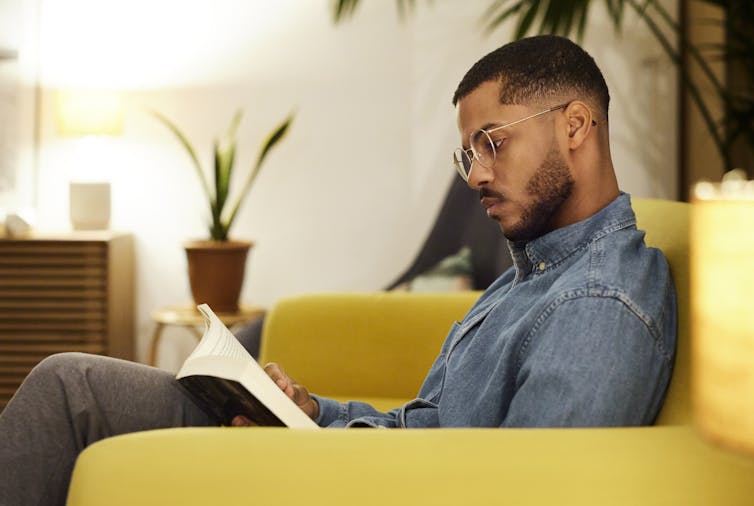
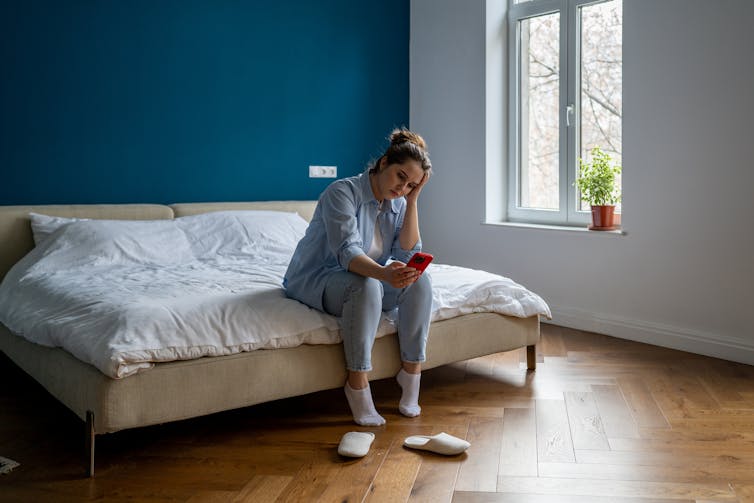
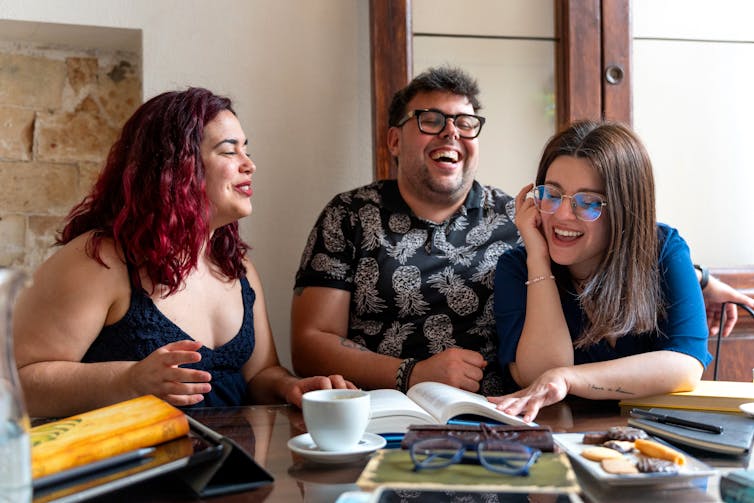
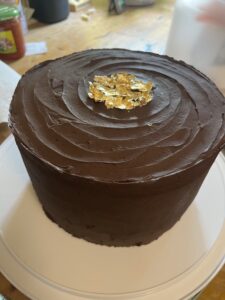
 It was as I was making the cake that I realized I do have some very favorite kitchen tools: my instant-read thermometer, my kitchen scale, my decorating turntable, and my cake lifter. The utility of the instant-read thermometer is pretty obvious: no matter if you’re making fudge or rib roast, being able to know what the temperature of the object is can be crucial. When I bake bread I can be misled as to the doneness by the golden color of the loaf, but my instant-read thermometer will tell me the truth about the interior. If I’m making filling for a cake, the instant read thermometer will keep me from turning the it into something stodgy and unlovely. I use my instant read thermometer daily.
It was as I was making the cake that I realized I do have some very favorite kitchen tools: my instant-read thermometer, my kitchen scale, my decorating turntable, and my cake lifter. The utility of the instant-read thermometer is pretty obvious: no matter if you’re making fudge or rib roast, being able to know what the temperature of the object is can be crucial. When I bake bread I can be misled as to the doneness by the golden color of the loaf, but my instant-read thermometer will tell me the truth about the interior. If I’m making filling for a cake, the instant read thermometer will keep me from turning the it into something stodgy and unlovely. I use my instant read thermometer daily.